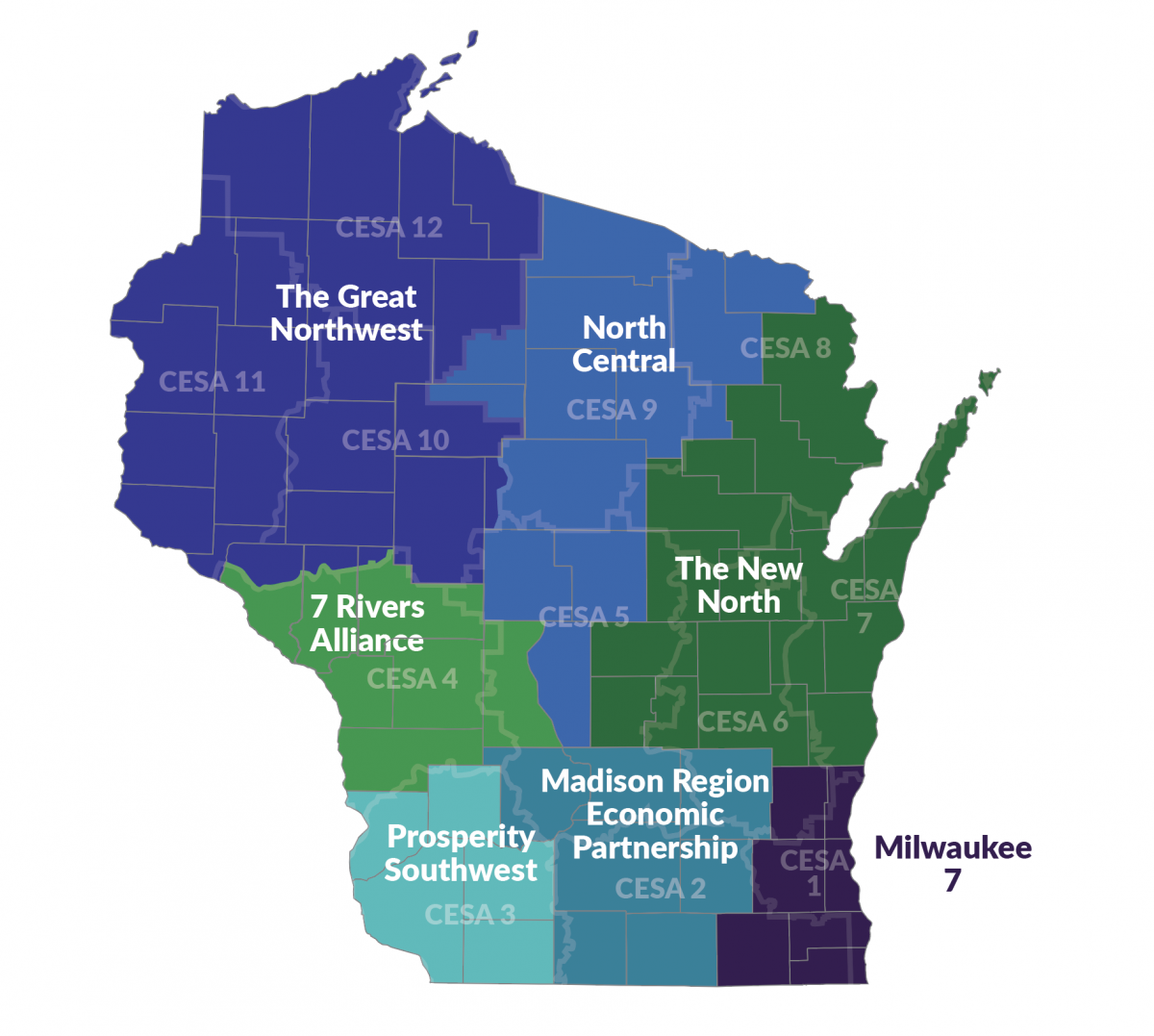Pathways Wisconsin is a statewide effort to deliver high-quality career-oriented programming in high schools that reflects the needs of prospective employers in their communities.
Focused at the regional level, the program is tailored to the specific needs of each of the nine regions. MadREP has taken an active role in Pathways Wisconsin since its inception, adding four pathways (Patient Care, Digital Tech, Advanced Manufacturing and Construction). We expect to add a fifth agricultural pathway this year.
What is Advanced Manufacturing?
The term “advanced manufacturing technology” has been coined for this pathway to encompass the rapidly changing nature of this industry. In its simplest definition, manufacturing takes in raw materials to produce products that are useful for a customer. Advanced manufacturing builds on this definition by utilizing technology to improve products or processes; thereby increasing efficiency, reliability, and quality for newer and better products.
Manufacturing is High Tech
The manufacturing industry has evolved and must now account for data and information integrated into manufacturing technologies, products, and processes. As a result, we must all embrace a broader definition of what it means to build a career in manufacturing.
Industry Subsectors
Each advanced manufacturing industry subsector offers career opportunities for a range of educational skill levels and salaries.
- Production ($25,030 – $161,870)
- Engineering & Design ($39,750 – $115,380)
- Industry 4.0/4th Industrial Revolution ($27,740 – $110,620)
- Electro-Mechanical ($25,630 – $102,780)
- Supply Chain ($23,590 – $118,540)
Career Pathways in High School
The pathway must include a sequence of courses, including at least two career and technical education courses and two of the following components: a career and technical student organization, work-based learning, college credit opportunities, and an industry recognized credential.
Get involved!
Businesses in our Region have highlighted talent development as a top concern for several years and it has only increased since the onset of the pandemic. If your business would like to take an active role in cultivating your next generation of talent, fill out this brief intake form to get started.



 Sun Prairie Star
Sun Prairie Star Focused at the regional level, the program is tailored to the specific needs of each of the nine regions. A region follows the geographic boundaries of the local regional economic development organization. Within each one, career pathway collaborative groups bring together employers, workforce and economic development organizations, higher education professionals, districts, and Cooperative Educational Service Agencies (CESAs.)
Focused at the regional level, the program is tailored to the specific needs of each of the nine regions. A region follows the geographic boundaries of the local regional economic development organization. Within each one, career pathway collaborative groups bring together employers, workforce and economic development organizations, higher education professionals, districts, and Cooperative Educational Service Agencies (CESAs.)